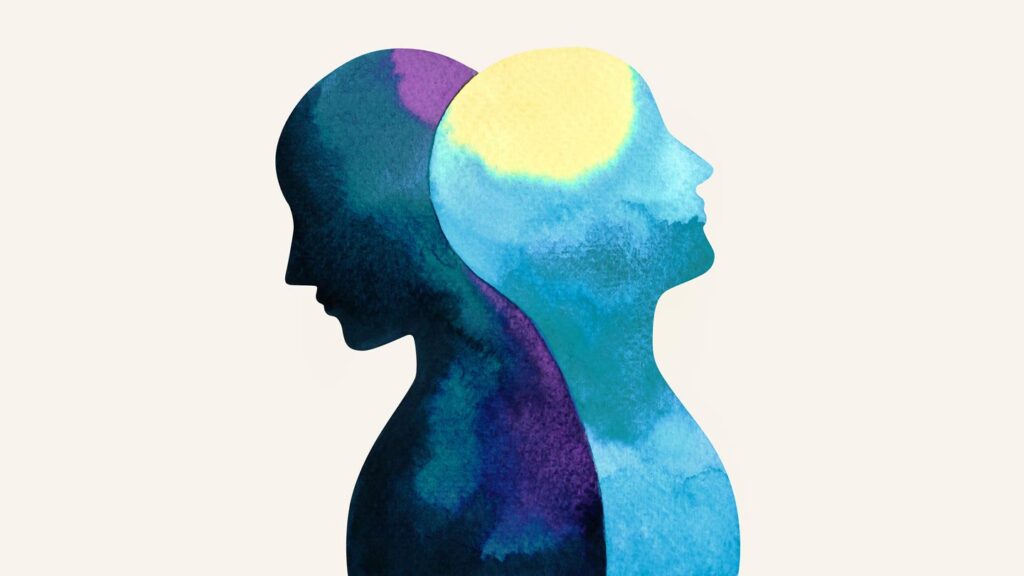Bipolar disorder, formerly known as manic depression, is a complex mental health condition characterized by extreme shifts in mood, energy levels, and behavior that affects millions worldwide. Unlike occasional ups and downs, these mood swings are significant and can disrupt daily life.
Understanding the Mood Swings:
At its core, bipolar disorder manifests in two main phases: manic episodes, characterized by heightened energy, euphoria, and impulsivity, and depressive episodes, marked by profound sadness, lethargy, and feelings of hopelessness. These mood swings can vary in intensity and duration, making it challenging to manage without proper support and treatment.
- Mania: This is an elevated mood state characterized by excessive energy, racing thoughts, grandiosity (inflated sense of self-importance), increased talkativeness, decreased need for sleep, and risky behavior.
- Hypomania: A less severe form of mania, hypomania still involves elevated mood, but with less severe symptoms and a lower likelihood of causing significant disruption.
- Depression: This is the opposite pole of the bipolar spectrum, characterized by feelings of sadness, hopelessness, loss of interest in activities once enjoyed, changes in appetite or sleep patterns, fatigue, difficulty concentrating, and suicidal thoughts.
Beyond Mood Swings
Changes in behavior can also accompany mood swings. During manic episodes, individuals may engage in impulsive spending, reckless sexual behavior, substance abuse, or poor decision-making. Depression can lead to social withdrawal, neglect of responsibilities, and difficulty completing tasks.

Living with Bipolar Disorder:
Bipolar disorder is a lifelong condition, but it can be effectively managed with treatment. Treatment for bipolar disorder typically involves a combination of medication, psychotherapy, and lifestyle modifications. Mood stabilizers, antidepressants, and antipsychotic medications may be prescribed to manage symptoms and stabilize mood fluctuations. Psychotherapy, including cognitive-behavioral therapy (CBT) and interpersonal therapy (IPT), can help individuals develop coping strategies, improve self-awareness, and enhance interpersonal relationships.
Developing healthy lifestyle habits, like maintaining a regular sleep schedule, getting regular exercise, and eating a balanced diet, is also crucial for managing bipolar disorder.

Importance of Early Diagnosis:
Early diagnosis and intervention are crucial for preventing episodes of mania and depression, and improving long-term outcomes. If you or someone you know experiences extreme mood swings, persistent changes in behavior, or any of the symptoms mentioned above, schedule a consultation with a mental health professional.
Bipolar Disorder: Not a Character Flaw
Bipolar disorder is a medical condition, not a sign of weakness or personal failing. With proper treatment and support, people with bipolar disorder can lead fulfilling and productive lives. By openly discussing bipolar disorder, we can raise awareness, break down stigma, and help those struggling with this condition find the support they need.



